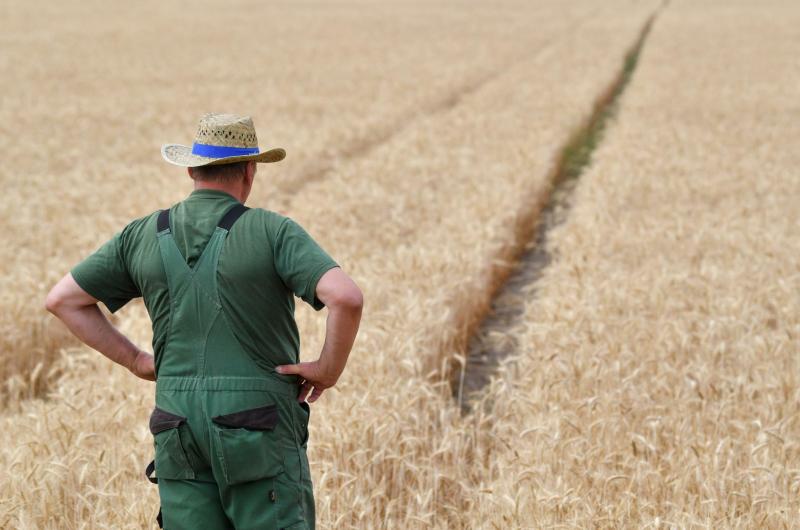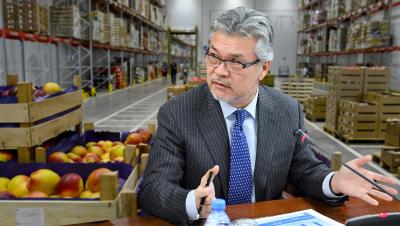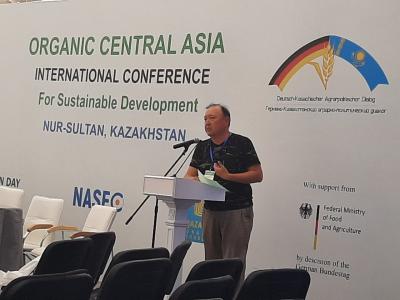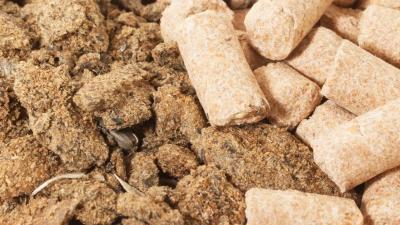
Foreign farmers shared with their Kazakh counterparts how they manage weeds and retain moisture in the soil. The meeting was held online as part of a roundtable organized by the International Agricultural Association DLG and World of NAN.
In Kazakhstan, the last few years have been dry. The forthcoming agricultural season, according to preliminary assessments of experts, will also be under water deficiency conditions. To solve this problem, foreign farmers have long switched to no-till technology (No-Till). For example, Sean Cameron, a farmer from Argentina, introduced this technology back in 1995.
"When you switch to no-till, the hardest part is changing your mind. Because we've been tilling the land all along, and then all of a sudden there's no tilling. Next, you have to work differently, adapt farm equipment. It takes time to understand the benefits of No-Till. But there are advantages - it is 50-60 millimeters more water in the soil. We have had these benefits for 15-20 years. But there are problems, too. We are now seeing that our weeds have become resistant to the chemicals and we have to adapt new methods. However, I will not abandon the no-till technology," said Sean Cameron.
Canadian farmer John Gehrer echoed his colleague's sentiment, "Changing minds is a big challenge. When we started No-Till, we were told it would never work. Today, no-till is already commonplace. But you have to consider that it's only good for certain crops. It's good for rapeseed, peas, but bad for onions. If there are problems with weeds, it will be 10 to 15 years from now."
Mark Swift, a farmer from Australia added: "America is different. In Central Asia, low soil carbon and soil compaction is a big problem. If we use disc harrowing, it's very different from No-Till machines. Using No-Till machinery, herbicide application options are limited, they will be ineffective if there is no front tillage. So, not only do you have to change your mindset, but you also have to solve some physical problems."
The Canadian agrarian called forest belts another tool to retain moisture in the ground. According to his experience, it also helps to reduce soil erosion. But it is more suitable for small farms, because it prevents the movement of machinery. The farmer "catches" the snow with the help of crop residues. But here, too, there are difficulties: they need to be removed from the fields, as they interfere with the seedlings.
Next, farmers switched to the sore subject for everyone - weeds. A farmer from Argentina said that in a few years they will not be able to control weeds. Because they are ahead of the curve in terms of the speed of development of methods to control them.
"We have to use cover crops because we cannot use herbicides and chemicals all the time. Even so, the land has to be tilled a little bit," Sean Cameron added.
The Canadian farmer, on the other hand, is not afraid of weed problems. In his opinion, using broadleaf cover crops or growing alfalfa for three to four years helps solve the problem easily.
"In general, we can do rotation or alternating herbicides, which means we don't have to apply the same ones all the time. We can also apply strategic types of tillage. For example, no-tillage, so we could secure ourselves. I'm not saying it's purely no-tillage, rather a combination," John Gehrer noted.
Mark Swift saw no difference in switching to no-tillage. Weeds are present in Australia, which disperse their seeds over the surface. Therefore, local farmers have to use effective herbicides. Also, given the climatic conditions, fallows help.
"However, we don't want to depend on chemicals. We try to spot spray it, using modern technology. Weeds are also collected at harvest time and disposed of away from tillage areas. I believe that physical tools of influence can also be applied. For example, crop rotation is effective, which also preserves moisture and reduces stress", ended the farmer from Canada.
The audience and participants of the conference asked a lot of questions to the foreign specialists. Foreign farmers also did not stand aside and asked questions about the experience of their Kazakh colleagues. The full version of the meeting can be found on the DLG site. (Pre-registration is required)












































Обсуждение